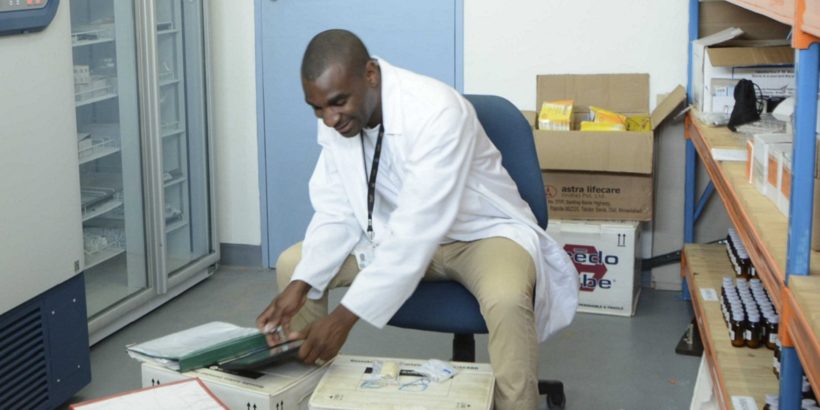A health economist’s job is to provide data to help decision-makers determine the best use of limited public resources. We assess and compare the costs and benefits of different interventions and then communicate the data to decision-makers. When policymakers make evidence-based decisions guided by health economic data, the country’s communities, economy, and health system benefit.
As health economists focused on economics of vaccines, we have seen this first-hand. While the data is rarely perfect, utilizing all available evidence to inform country decision-making on vaccine introduction has long-term benefits. Health economics can improve an immunization program’s reach, impact, and sustainability. Strong health systems depend on evidence-based decision-making. And this evidence depends on local researchers who are proactive and engaged in sharing their research.
As the African Health Economics and Policy Association (AfHEA) hosts its sixth Scientific Conference in Kigali, Rwanda, this week, we are grateful for the opportunity to share our economic analyses on typhoid in Malawi. We are encouraged by the wide variety of local economic research being shared. The conversations hosted by the conference will help inform how such evidence can strengthen local, national, and regional health systems in the African region.
Evidence-based TCV strategies: An example from Malawi
The Ministry of Health in Malawi, where a heavy burden of typhoid is increasingly resistant to treatment, has considered typhoid conjugate vaccine (TCV) introduction. Global analyses have already predicted that TCV introduction would be cost-effective in Malawi, but more country-specific data helps inform specific strategy decisions. The Typhoid Vaccine Acceleration Consortium (TyVAC), which includes PATH and the Malawi-Liverpool-Wellcome Trust, among other partners, worked with the MOH, Mzuzu Central Hospital, and the World Health Organization to conduct a cost of delivery analysis for TCVs in Malawi. TyVAC also conducted a cost of illness study to assess the economic burden associated with typhoid in Blantyre, Malawi.
Our goal for both studies was to help the MOH assess the full economic implications of TCV introduction in Malawi. Thankfully, the MOH made the decision to introduce TCV and is currently planning for an introductory campaign in late 2022.
We are presenting these findings at AfHEA in the hopes that the data will help inform other decision-makers in the African region as they assess the value and feasibility of TCV introduction in their countries. Other countries can use data from Malawi to inform their own decision-making or inspire similar studies in their countries.
Local economic data: a driver of equity and resilience in health systems
When available and disseminated, economic data can be a force for both equity and resilience. Health economic analyses can help inform how, where, and when to implement interventions to improve equity within and between countries. The impact is stronger when the data and analysis are conducted within a country by—or in partnership with—local health economists and other local stakeholders. While is it neither feasible nor necessary to have every locality conduct its own study, local data drives local decisions.
To foster more resilient and equitable health systems in African countries, we need to build local health economic capacity. We must also root our analyses in the context of country policymaking. Bringing together health economic stakeholders from the African region—as this conference is doing—is crucial to achieving such progress.
Photo (top): A pharmacist at the Malawi Liverpool Wellcome Trust Pharmacy prepares typhoid conjugate vaccine (TCV) for the efficacy trial in Malawi in 2018. Economic data in addition to this efficacy data will help inform Malawi’s TCV introduction strategy.



